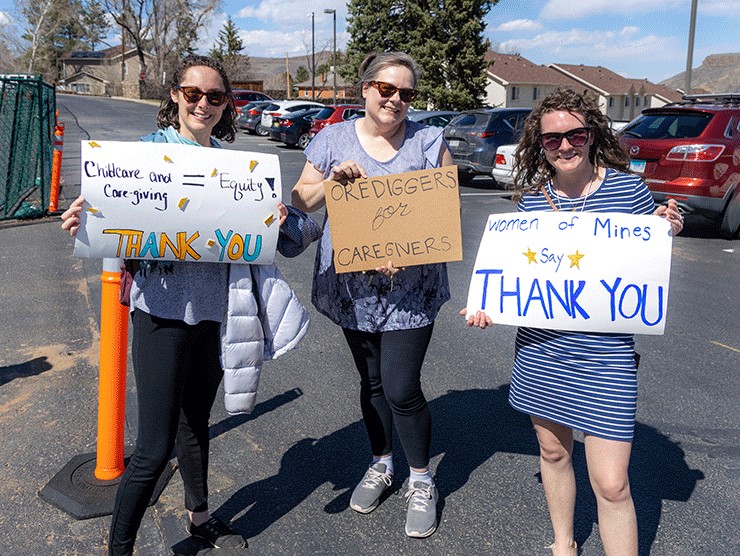We recently sat down with our partners at Yale University to learn about the pivotal role family care plays in their talent strategy. With more than 16,000 members of faculty and staff, as well as 5,000+ grad students, Yale has a wide breadth of people relying on it for their care needs.
Deborah Stanley-McAulay, a 28-year Yale veteran and the university’s current Associate Vice President for Employee Engagement and Workplace Culture, took the time to speak with us about Yale’s family-first approach to benefits strategy and how the university supports its multi-generational workforce.
What are the major challenges you have with recruiting employees in the current talent environment?
Some of our challenges are around flexibility and becoming more agile and diversified with our programs and benefits to draw in a younger demographic. According to Inside Higher Ed, twenty nine percent of higher ed staff are 55+ and actively thinking about retirement. That’s almost a third of the industry’s workforce that we’ll have to replace in the next few years.
In addition, today's job seeker is not the job seeker of just three years ago. Their set of expectations is completely different and there is a growing demand for more employer flexibility and support. Prior to COVID, we weren't an organization that broadly offered flexible work arrangements or hybrid work. Now we have hybrid schedules, and that diversity of workplace requires a diversity of workspace and even, a diversity of benefits. Employees now expect that you will meet them where they are in life with the benefits they need.
Yale is known first and foremost for academic excellence. How do you apply that same standard of excellence to your talent strategy?
When people think about Yale, they automatically think about the academic brand. However, we also have the employment brand. There's academic excellence if you're thinking about the role of student and faculty. What we've been doing is expanding the brand to include employment excellence.
Part of the employment brand is not just professional growth within the organization, but it's personal growth in support as well. I put child care and elder care in those two buckets as part of the personal and professional equation that we use to recruit members to our workplace.
Over time, families’ needs change. How does Yale work to offer care benefits that support a broad array of family needs?
We have employees from five different generations working at Yale and needs change as you get older and your life evolves. What is most pleasing to me is that we believe many of our programs can support the different event stages and phases of an individual's life, whether they're with us for 40 years or they're with us for five years.
For instance, we offer education assistance and student loan forgiveness programs. Those are benefits that might be extremely useful to staff members in their 20s and 30s, but not so much for an employee in their 70s. Conversely, a 23-year-old employee may not have the need for back-up child or elder care just yet, whereas staff with young children or aging parents certainly do. That’s an incredibly valuable benefit to be able to offer employees in all stages of life.
Where do you see the return-on-investment for the benefits that support caregivers? For example: Do you see benefits to improving education delivery? Productivity? Mental wellbeing? Etc.
I think we measure that in two ways. The first way is through our culture assessment in which we ask questions around our benefit programs and structure. And what we’ve learned is that people love Yale and are also committed to working at Yale. Then when we do a deeper dive and ask, “What keeps you here?” we’re looking for themes of what continues to engage our workforce. And it’s things like child care.
The second way we measure the return on investment is from anecdotal information. We actually have a beautiful initiative under our diversity, equity, inclusion, and belonging effort where we've invited staff to participate in a storytelling session. They can either write or share an example of where they have felt included, and oftentimes the examples take the word ‘inclusion’ and convert it to ‘respect.’ And one of the returns on investment is hearing those stories in real time from our working parents, who describe different services that we offer as being a lifeline to them, such as the Yale child care subsidy which launched in 2022.
What are some of your current initiatives to help employees develop and grow their careers?
For us, it’s all about upskilling our staff and providing a clear path to growth. We have what we call our LSI, or “learning strategic initiative,” and that has two phases. One, we are upgrading the technology that is used to track learning and development, both professional and personal development, for our staff. The second phase we are initiating is an assessment about what makes an employer great. And we believe part of that value proposition is a commitment to learning and development. Through our education assistance program, administered through EdAssist by Bright Horizons, we offer employees up to $5,250 per year in tuition reimbursement. We have strong enrollment among employees pursuing master's degrees, which as a higher education institute, is very valuable to us.
I also just want to underline career mobility. Often people imagine this ladder where individuals are constantly taking a step or two, but in fact, our philosophy is that movement can be both horizontal and vertical. Sometimes it requires a strategic horizontal move to then determine the vertical movement that will happen. And so, we will be going very deep in examining where career paths need to be created. Overall, we want to ensure we’re doing everything in our power to help our employees grow both in their careers and in their personal lives.
Thank you so much to Deborah for taking the time to speak with us and offering her fantastic insights.




